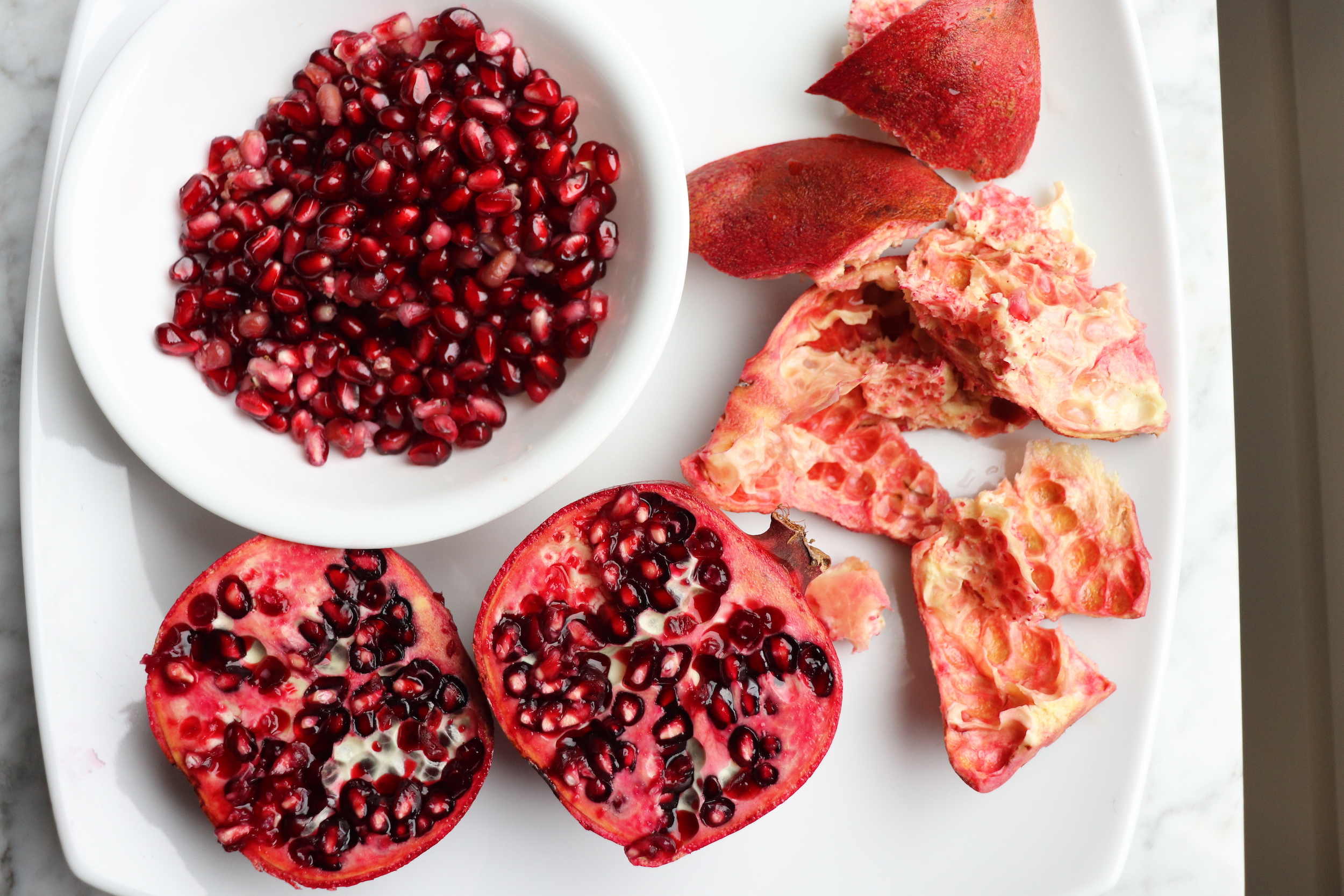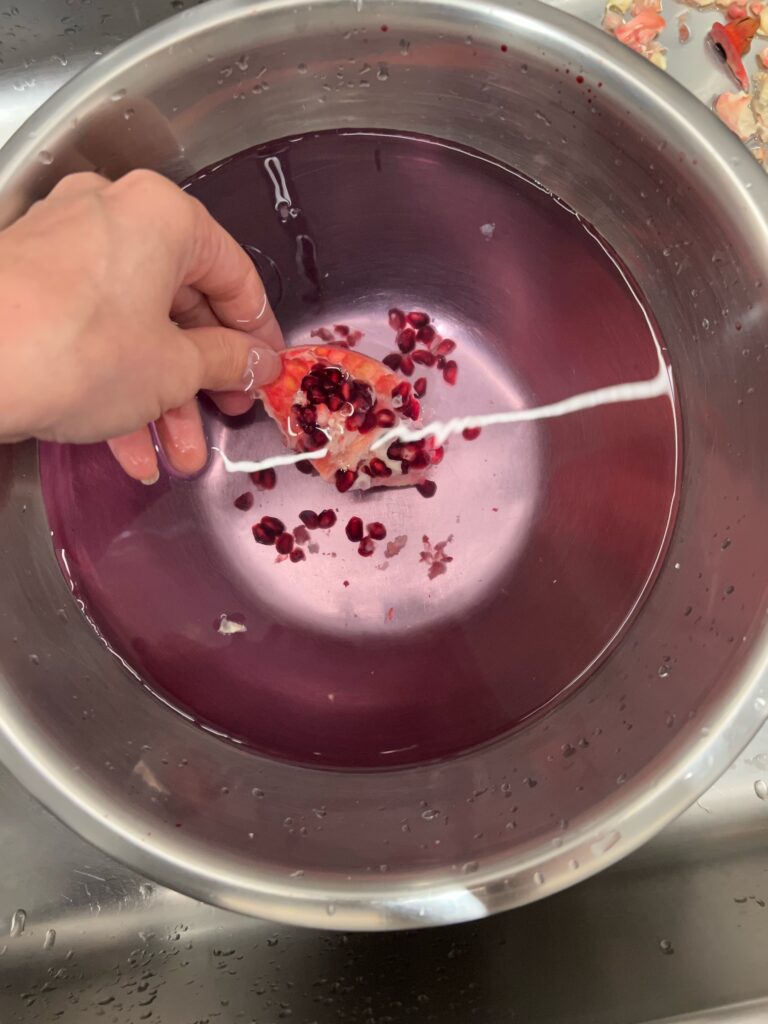Pomegranate is quickly becoming known as a “superfood” due to its many health benefits. This fruit has been shown to reduce the risk of prostate cancer, help with blood pressure and cholesterol, improve joint function, and help fight infections. Pomegranates are also a good fibre, vitamin C, and potassium source. If you want to enjoy the health benefits of pomegranates, here is a nutritional snapshot of pomegranates and tips on how to include them in your diet!
CANCER-FIGHTING
Native to modern-day Iran and Iraq, pomegranate has been used for thousands of years in many medicinal traditions, from making teas to gargles. Recent studies demonstrate that it contains chemicals that are antibiotic in nature and have cancer-fighting properties.
GUT AND IMMUNE HEALTH
One of their lesser-known benefits is the effect they can have on gut bacteria. Pomegranates contain polyphenol compounds like tannins, ellagic acid, and anthocyanins that research has shown to be beneficial for the bacteria in our gut. Studies suggest that certain species of bacteria can metabolize these compounds, leading to improved digestion and metabolic functions. Polyphenols are also prebiotic, meaning they help to feed our healthy residential gut bacteria.
Furthermore, pomegranate consumption also appears to increase the diversity of healthy gut bacteria, which helps keep our digestive systems balanced. Taken together, this evidence suggests that including fresh pomegranates and their juice as part of a diet could help promote a healthier gut microbiome.
If that’s not enough, they also help to keep the list of harmful bacteria below at bay.
Candidiasis, Giardia spp., Blastocystis spp., Entamoeba histolytica, Cryptosporidium parvum, Trichomonas vaginalis, E. coli, Campylobacter jejuni, Salmonella spp., Shigella spp., Vibrio Pseudomonas aeruginosa, Klebsiella pneumoniae, Staphylococcus aureus, Proteus spp., Listeria monocytogenes, Yersinia enterocolitica
MEN’S HEALTH
Simply drinking a glass of juice daily has been shown to decrease prostate-specific antigens (PSA) levels in men – which means a lower risk of prostate cancer.
HEART PROTECTIVE
Its polyphenol compounds can lower blood pressure and the risk of heart disease and stroke. Pomegranate can help stop free radicals from oxidizing unhealthy LDL cholesterol and cleaning up arterial walls.
JOIN HEALTH
Antioxidant flavonols have been shown to reduce the activity of proteins that cause inflammatory conditions like arthritis. Pomegranate extract (equivalent to one glass of juice) can block the production of an enzyme that breaks cartilage down in the body.
FIGHTS INFECTION
Because the juice contains antiviral properties, fruit extracts can be effective against dental plaque and colds and flu.
THE BEST WAY TO CONSUME IT – EAT THE WHOLE FRUIT

Eat the seeds. Whether you incorporate it into your favourite smoothie or include a handful in a salad, eating the seeds will also pack a punch of fibre and nutritious micronutrients.
Make A Pomegranate Husk Tea. I recently made a powdered tea from the rind of two pomegranates, and I have to say, it was very easy. It is a bitter taste, so adding a little honey should do the trick, but eating bitter food is an excellent habit for gut health, so keep at it, and your tastebuds will adjust to the flavour.
Use this link for instructions on making pomegranate husk tea.
You can Juice pomegranate seeds too, which removes the fibre leaving you with powerful polyphenols and antioxidants.
Use this link to juice pomegranate.
Pomegranate Molasses. This concentrated form of syrup is a staple in middle eastern dishes and still contains all the nutritional value of pomegranate. It can be used similarly to vinegar in dressing or as a delicious substitute for balsamic vinegar, marinades, and glazes.
Use this link to make pomegranate molasses.
 Quick Tip:
Quick Tip:
The easiest, fastest, and cleanest way to get the seeds out of the pomegranate is to cut it in quarters and submerge each piece in a bowl of water, pealing out the seeds as you pull the skin back.
If you don’t use water, pomegranate juice will fly all over the place, making a big red mess.
Smacking the back of the pomegranate with a wooden spoon takes longer.


